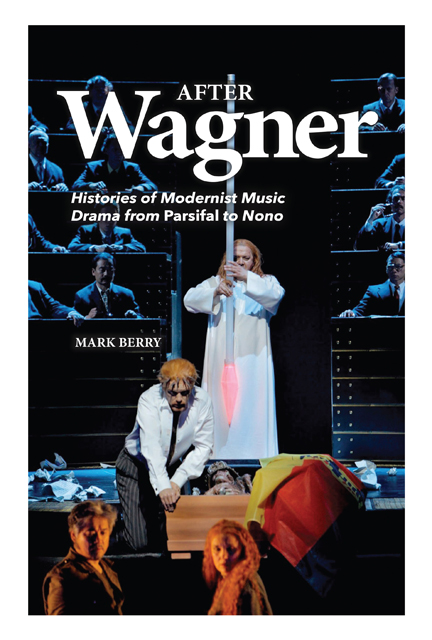Book contents
- Frontmatter
- Contents
- List of Music Examples
- Acknowledgements
- Dedication
- Introduction: ‘After Wagner’
- Part I In the Shadow of German Idealism: From Parsifal to Capriccio
- Part II Composition after the Second World War: From Germany to Italy, and Back Again?
- Part III Performance and the Fruitful Instability of the Work: From Parsifal to Nono
- Bibliography
- Index
Part II - Composition after the Second World War: From Germany to Italy, and Back Again?
Published online by Cambridge University Press: 24 February 2023
- Frontmatter
- Contents
- List of Music Examples
- Acknowledgements
- Dedication
- Introduction: ‘After Wagner’
- Part I In the Shadow of German Idealism: From Parsifal to Capriccio
- Part II Composition after the Second World War: From Germany to Italy, and Back Again?
- Part III Performance and the Fruitful Instability of the Work: From Parsifal to Nono
- Bibliography
- Index
Summary
Prelude
Given that the three composers, Luigi Dallapiccola, Luigi Nono, and Hans Werner Henze, examined in this second part are likely to be less familiar to many readers than Wagner, Schoenberg, and Strauss, I have tried to offer here a greater sense of contextualisation. That has arguably involved treating with our second-part trio more as composers, less exclusively as musical dramatists, hence the titular inclusion of ‘composition’, but there is no harm in that. Again, different standpoints afford different problems and opportunities.
Dallapiccola’s Il prigioniero contributes to what again proves to be a slight complication of chronological boundaries. Although Dallapiccola began work upon this opera only the year after Strauss completed Capriccio, and although both may be considered to be ‘war works’, the composer is undeniably of a different generation from Strauss and indeed from Schoenberg. Indeed, as we shall see, Dallapiccola most definitely places himself ‘after’ Schoenberg and Wagner. The avowed political commitment of all three of this section’s composers, that of Nono and Henze still more so than Dallapiccola’s, was a dramatic concern at least as emphatically as it had been for Wagner, arguably more so, and certainly more than it had been for Schoenberg, let alone Strauss. That does not preclude us from asking similar questions, nor indeed from understanding post-war composers as having asked similar or even some of the same questions, but it also suggests that there might be different questions and, at the very least, different standpoints worthy of exploration.
After all, the meaning of texts – of words, of harmonies, of performances, of stagings, of exegeses – changes over time. In his classic article, ‘Meaning and Understanding in the History of Ideas’, Quentin Skinner argues, amongst other things, that ‘any attempt to justify the study of … [the history of ideas] in terms of the “perennial problems” and “universal truths” to be learned from the classic texts must amount to the purchase of justification at the expense of making the subject itself foolishly and needlessly naive’. That does not necessarily deny ‘apparently perennial questions, if these are sufficiently abstractly framed’.
- Type
- Chapter
- Information
- After WagnerHistories of Modernist Music Drama from Parsifal to Nono, pp. 123 - 126Publisher: Boydell & BrewerPrint publication year: 2014



